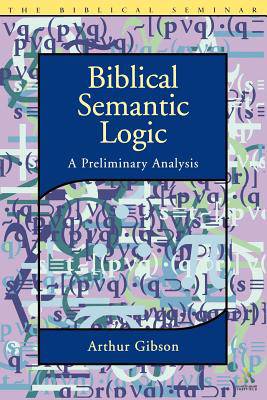
- Afhalen na 1 uur in een winkel met voorraad
- Gratis thuislevering in België vanaf € 30
- Ruim aanbod met 7 miljoen producten
- Afhalen na 1 uur in een winkel met voorraad
- Gratis thuislevering in België vanaf € 30
- Ruim aanbod met 7 miljoen producten
Omschrijving
Biblical Semantic Logic first appeared in 1981, and seeks to show that the study of biblical and ancient Near Eastern languages and literatures can be established on a logical basis. In a new prologue for this edition, Gibson reviews some of the scholarly treatment of the topic since the appearance of the first edition. He addresses the topics of originality and infinity and also suggests that deep areas of literary creativity resemble cosmology and pure mathematics. Gibson then demonstrates how the central areas of biblical usage (names, predicates expressions of quantity, idioms) can be mapped employing some contemporary philosophy, logic and linguistics. There is criticism of some previous scholarly interpretations, expecially where these have led to the underestimation of the conceptual and logical sensitivity of biblical narrative.
Specificaties
Betrokkenen
- Auteur(s):
- Uitgeverij:
Inhoud
- Aantal bladzijden:
- 282
- Taal:
- Engels
- Reeks:
Eigenschappen
- Productcode (EAN):
- 9781841271736
- Verschijningsdatum:
- 19/04/2002
- Uitvoering:
- Paperback
- Formaat:
- Trade paperback (VS)
- Afmetingen:
- 163 mm x 235 mm
- Gewicht:
- 444 g

Alleen bij Standaard Boekhandel
Beoordelingen
We publiceren alleen reviews die voldoen aan de voorwaarden voor reviews. Bekijk onze voorwaarden voor reviews.








